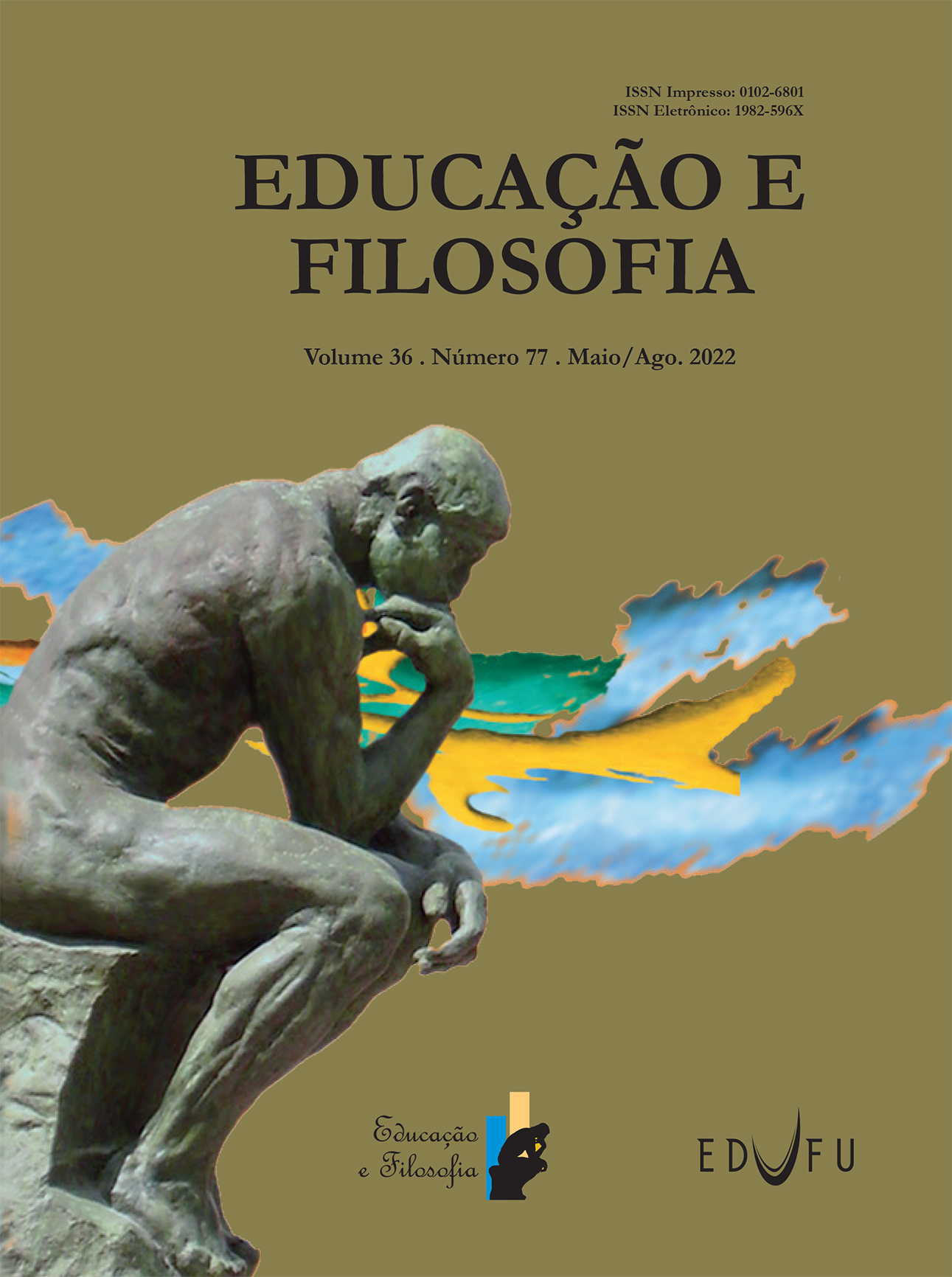A vida justa e a invisibilidade do filósofo na República de Platão
v.32 n.65 maio/ago. 2018 • Educação e Filosofia
Autor: Carlos Luciano Silva Coutinho
Resumo:
O tema da invisibilidade, na República de Platão, está diretamente ligado à prática da justiça e da injustiça. Glauco (livro segundo) faz um relato para sugerir que qualquer homem, mediante um mítico anel de invisibilidade, agiria injustamente: um indivíduo só agiria bem, segundo esta visão, quando submetido aos olhares de testemunhas, já que busca recompensas particulares, se agir bem, e teme ser punida, se agir mal. Sócrates (livro décimo) sustenta, no entanto, que um homem justo é capaz de agir bem, no interior de uma polis, mesmo diante da mítica possibilidade de se tornar invisível para buscar recompensas particulares. Tentaremos, nesse sentido, demonstrar como a invisibilidade mítico-alegórica, na República, serve para exemplificar o caminho filosófico justo para o melhoramento da psyche humana e da polis. Para tanto, apontaremos o “alguém” (τις) que solta o prisioneiro da Caverna (livro sétimo) como um exemplo fundamental dessa invisibilidade alegórica. Afinal, sabemos de sua existência, mas não sabemos quem ele é.
Abstract:
Fair Life and Invisibility of the Philosopher in Plato's Republic
The subject of invisibility in Plato’s Republic is directly linked to the execution of justice and injustice. Glauco (second book) points out that all humans, by means of a mythical ring of invisibility, would act unfairly. Thus, a human being would only act well when exposed to the gaze of witnesses, since it seeks its own reward for acting well and since it is afraid of being punished for acting badly. However, Socrates (tenth book) argues that a fair man is able to act well inside the polis, even in the face of the mythical possibility of becoming invisible and seeking his own reward. In this sense, we will try to show how the mythical-allegorical invisibility in the Republic serves to exemplify the right philosophical way to improve the human psyche and the polis. For this purpose, we will show the “someone” (τις) who releases the prisoner from the Cave (seventh book) as a key example of this allegorical invisibility – we know about his existence, but we do not know who he is.
Keywords: Republic. Invisibility. Fair life. Unfair life. Philosophical invisibility.
ISSN: Impresso: 0102-6801 e Eletrônico: 1982-596X
DOI: https://doi.org/10.14393/REVEDFIL.issn.0102-6801.v32n65a2018-16
Texto Completo: http://www.seer.ufu.br/index.php/EducacaoFilosofia/article/view/37773
Palavras-Chave: República. Invisibilidade. Vida injusta. Vida justa. Invisibilidade filosófica.

Educação e Filosofia
A Revista Educação e Filosofia mantida pela Faculdade de Educação e pelo Instituto de Filosofia da Universidade Federal de Uberlândia e seus respectivos programas de pós-graduação tem como propósito o incentivo à investigação e ao debate acadêmico acerca da educação e da filosofia em seus diversos aspectos, prestando-se como um instrumento de divulgação do conhecimento especialmente dessas duas áreas. Está indexada em 11 repertórios nacionais e internacionais e atualmente está avaliada no Qualis da CAPES com estrato A2.
